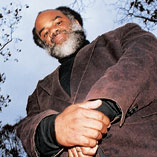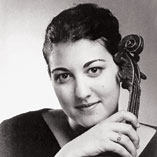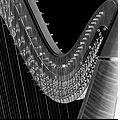| |
Jeffrey
Mumford
Assistant Professor of Composition
Emeritus Professor of Musicology Sylvan Suskin's final lecture
last May was as picture-perfect a call to and for civilization
as I have ever heard. Among his observations, which I share:
Isaac Stern's definition of music: "Music is the speaking
voice of the best part of human nature."
And Mendelssohn observed that for him, music "fills the soul
with a thousand things better than words."
Who can argue?
Art with a capital "A" and love are all we have left
to whatever is left of our humanity.
I want my work to touch people and transform them.
I believe that now I must redouble my commitment to my work and
(I hope) inspire others (students, whomever) to reach deeply into
their souls and do their best work.
I have so much to say and I now feel even more urgency to say
it. I definitely feel now that time is of the essence; this feeling
is one the likes of which I have not felt before.
 Jeffrey Mumford is from Washington, D.C. His family lives 40
minutes away from the Pentagon.
Jeffrey Mumford is from Washington, D.C. His family lives 40
minutes away from the Pentagon.
Tony
Arnold '90
Soprano
I think it is important to remember that, whether in good times
or bad, the function of art remains constant. What it means to be
a musician today is no different than what it meant four months
ago or four decades ago.
Music, like all art, serves as a mirror to humanity. Its purpose
is to ask the questions, not answer them. Every insight gained proposes
yet another avenue of inquiry.
In difficult passages, we feel pushed against the limits of our
literal minds. Music can then be an expansion into the conceptual
realm for some, or a buffer or anesthesia for others. In any case,
all art has its limits it cannot serve as a substitute for
spiritual clarity. However, art can be a vehicle that draws us closer
to such clarity. In this light, every artistic endeavor is worthwhile,
in any moment, not just the poignant ones.
Artistic activity is of most importance during the mundane times,
when nobody in particular is looking or listening.
Antonio
Pompa-Baldi
Visiting Assistant Professor of Piano
My English doesn't really allow me to say everything I feel and
think about the role of music in our lives, especially in dark moments
like this. All I know is that music is fundamental in helping all
human beings to believe once again in life, love, and joy after
such tragic events like the ones that occurred on September 11,
which make them doubt these feel- ings will ever exist or be the
same as before. Music does this, not just because it helps distract
the mind from the terrible thoughts that evil acts generate. Music
helps, in these circumstances and along with all arts, because it
is synonymous with creation, and with life, which is the opposite
of destruction and death. I think this is a good reason to consider
music, and our effort to offer music to the others, fundamental.
Antonio
Pompa-Baldi is from Foggia, Italy. He performed Chopin's Scherzo
no. 1 in B minor at "A Gathering for Reflection: Words and
Music." Read more about his recent accomplishments here.
Wendy
Richman '01
Violist
Whether putting my thoughts into writing, raising my hand in class,
explaining a concept, offering an opinion, or arguing a point, I'm
seldom a person who is at a loss for words. But September 11 left
me speechless, as it did many of us. I was surprised by my absolute
inability to process any coherent thought on the matter for several
weeks I still have trouble sufficiently articulating how I
felt that day.
To me, music is a medium through which I communicate everything
I can and cannot express through words: physical, intellectual,
emotional, and spiritual. Obviously, each musician's balance of
these factors is unique. I think we all share, however, a need to
create a product that transcends all the boundaries of speech. Even
music that uses text (and those who perform it) is crafted to highlight
the text through music.
What does music give us when language fails us? It's almost paradoxical.
I think most musicians and lovers of music would agree: listen,
and you'll know.

Violist
Wendy Richman performed Elliott Carter's "Elegy" at "A
Tribute Without Words," on November 8 at a musical response
to the events of September 11 held in Finney Chapel. (See "A
Tribute Without Words, Answered With Silence" on page 4.) She
presented the world premiere of Jeffrey Mumford's "wending"
three days later at a solo recital at the Phillips Collection in
Washington, D.C. II
Go to page { 1 :: 2 :: 3 :: 4 } of GIRGES
|



 Jeffrey Mumford is from Washington, D.C. His family lives 40
minutes away from the Pentagon.
Jeffrey Mumford is from Washington, D.C. His family lives 40
minutes away from the Pentagon.